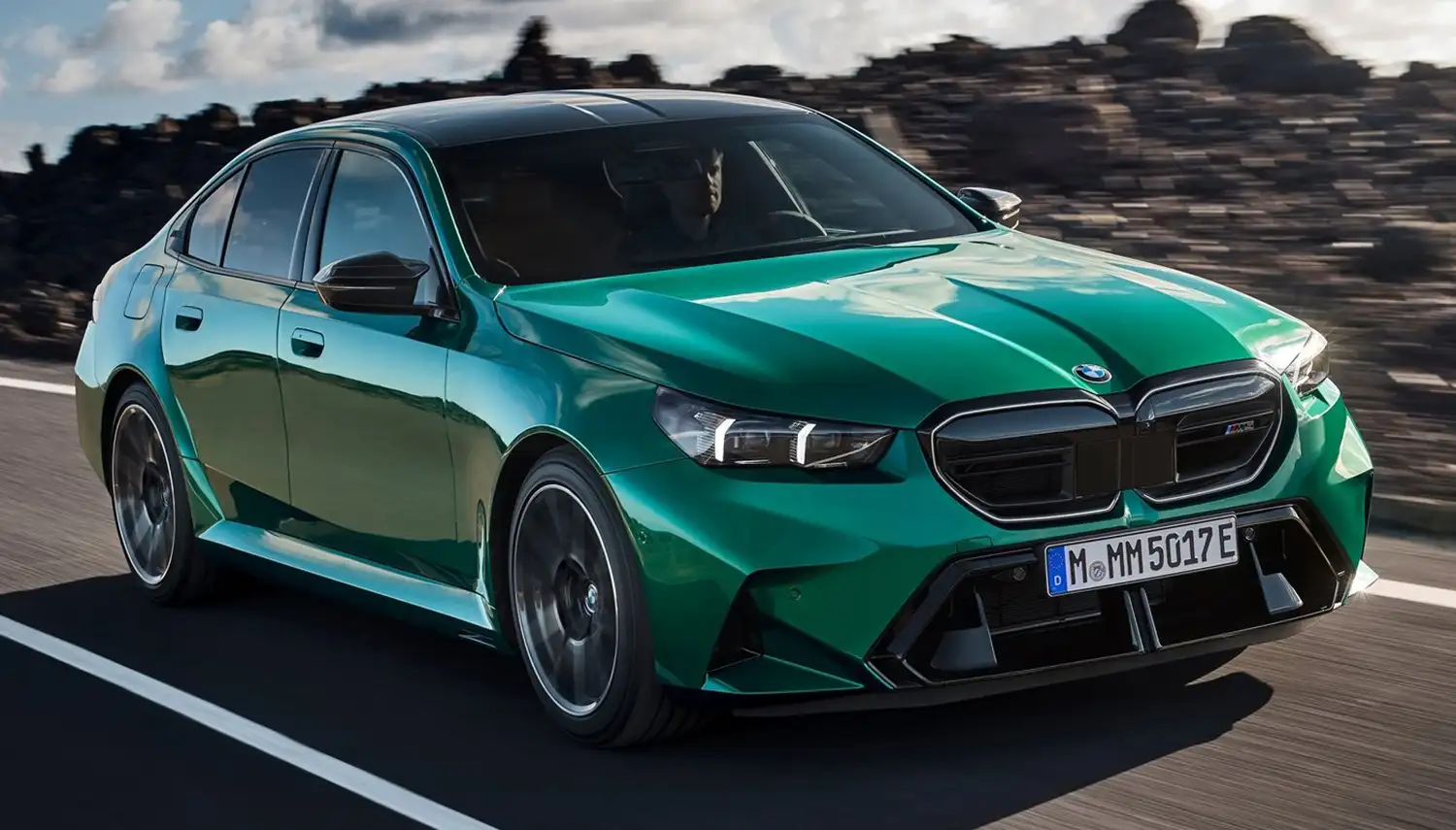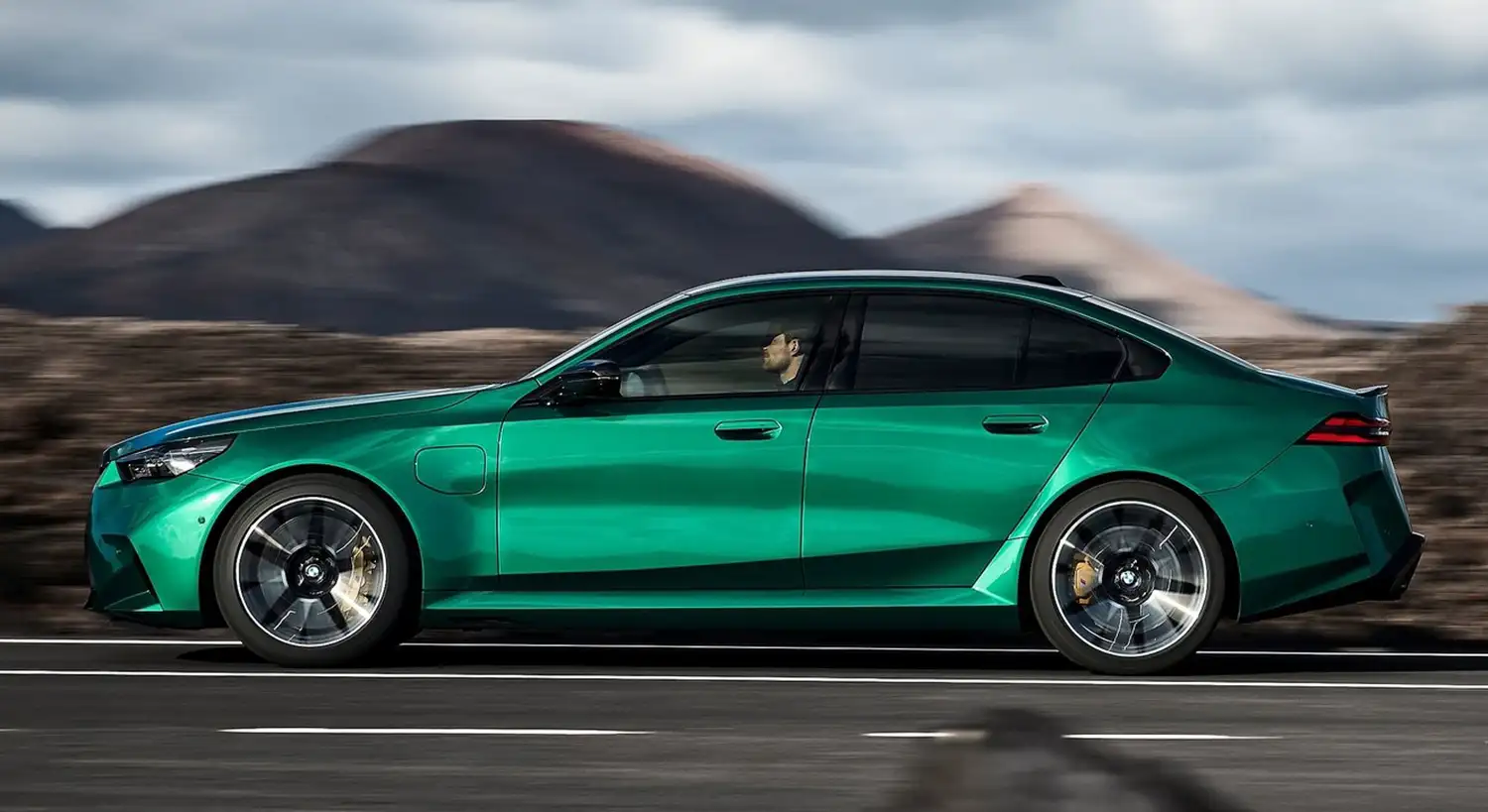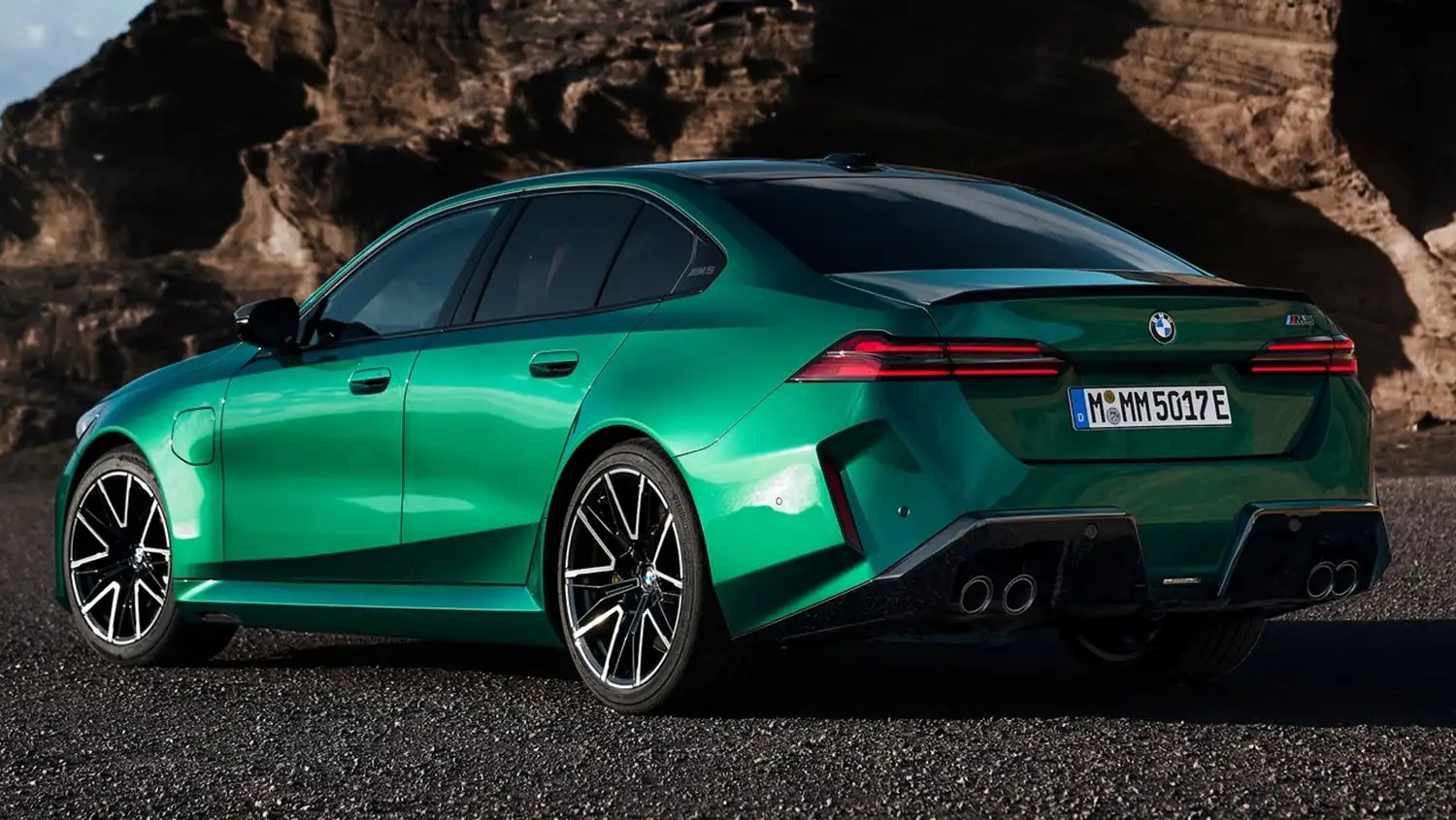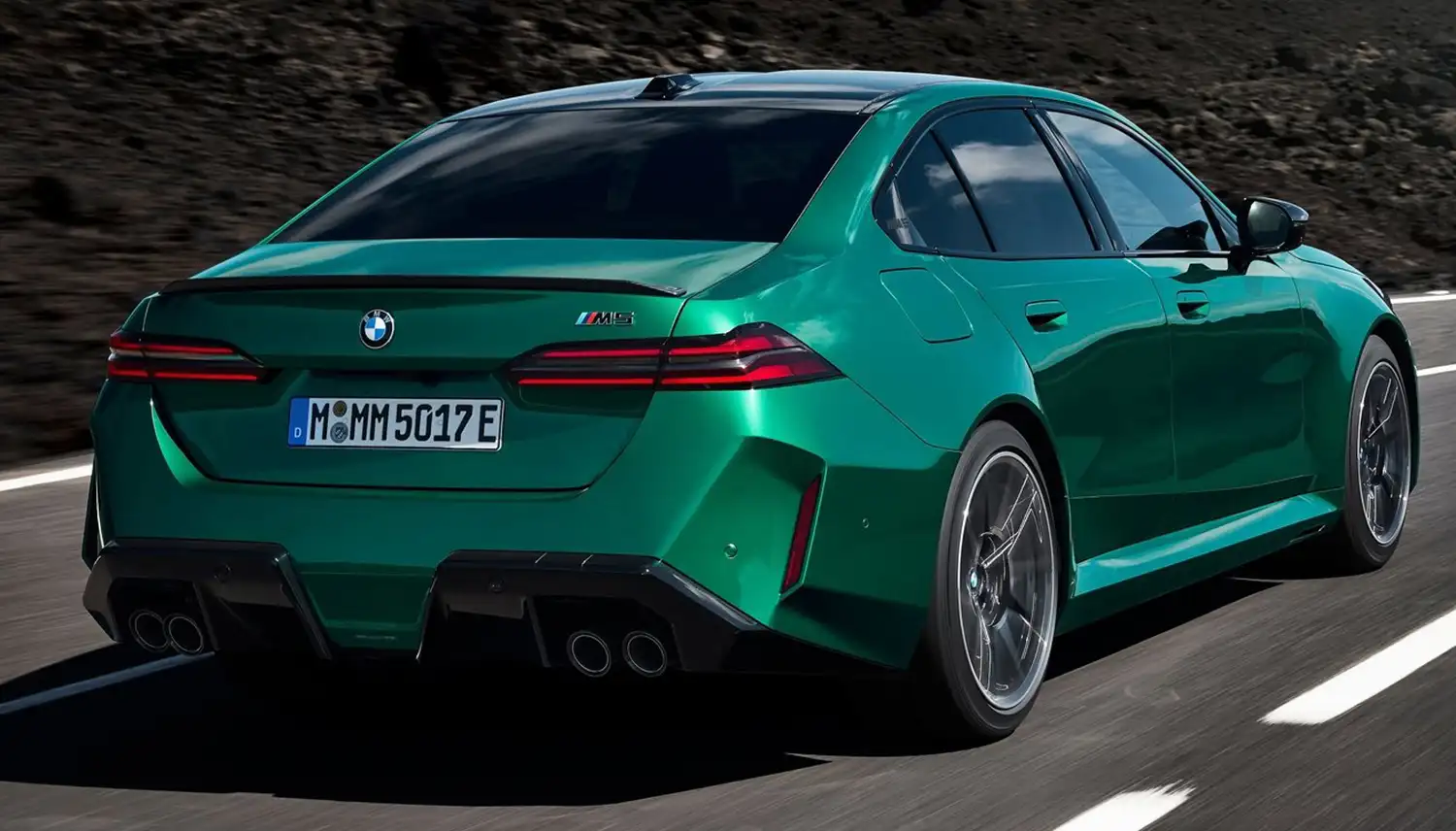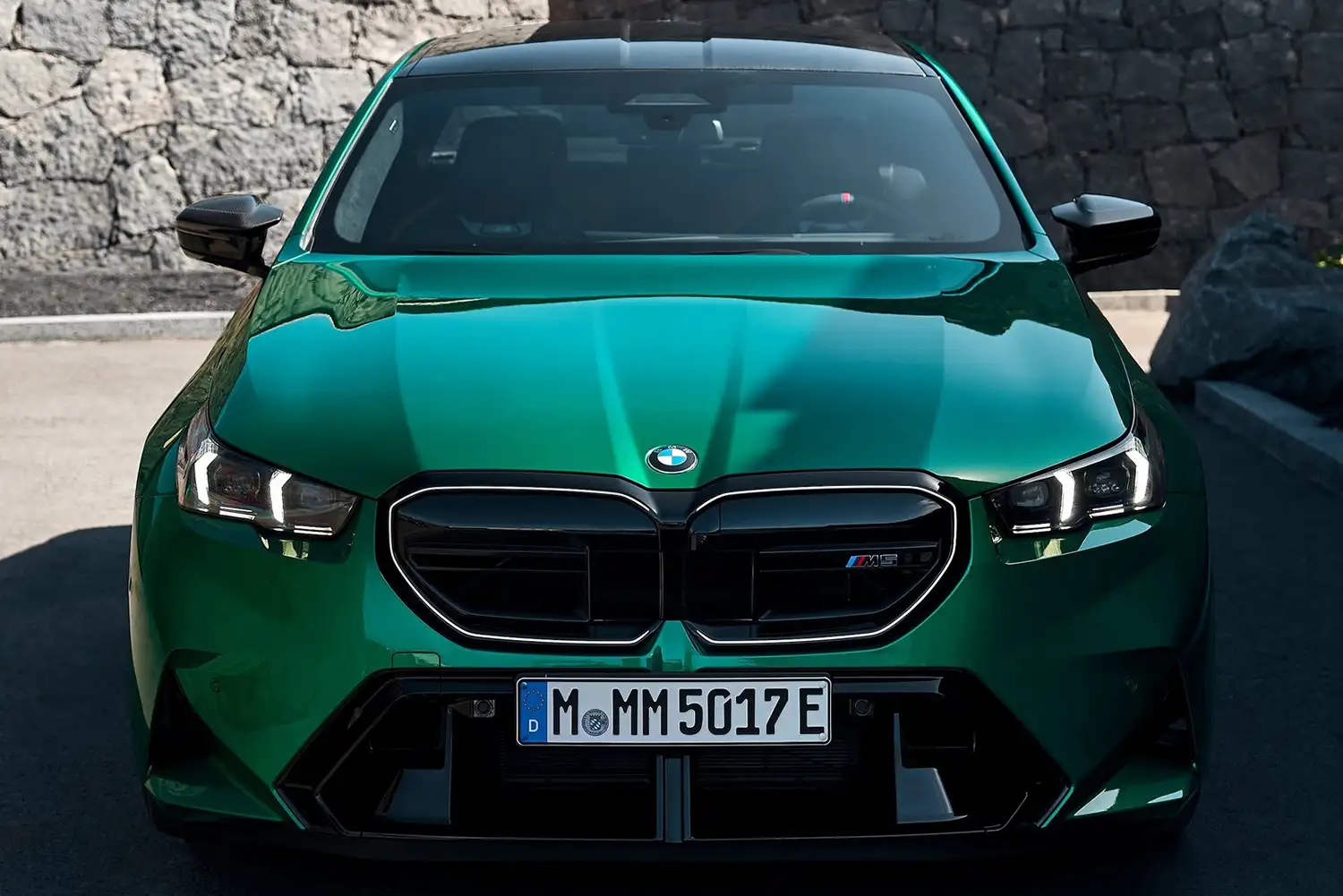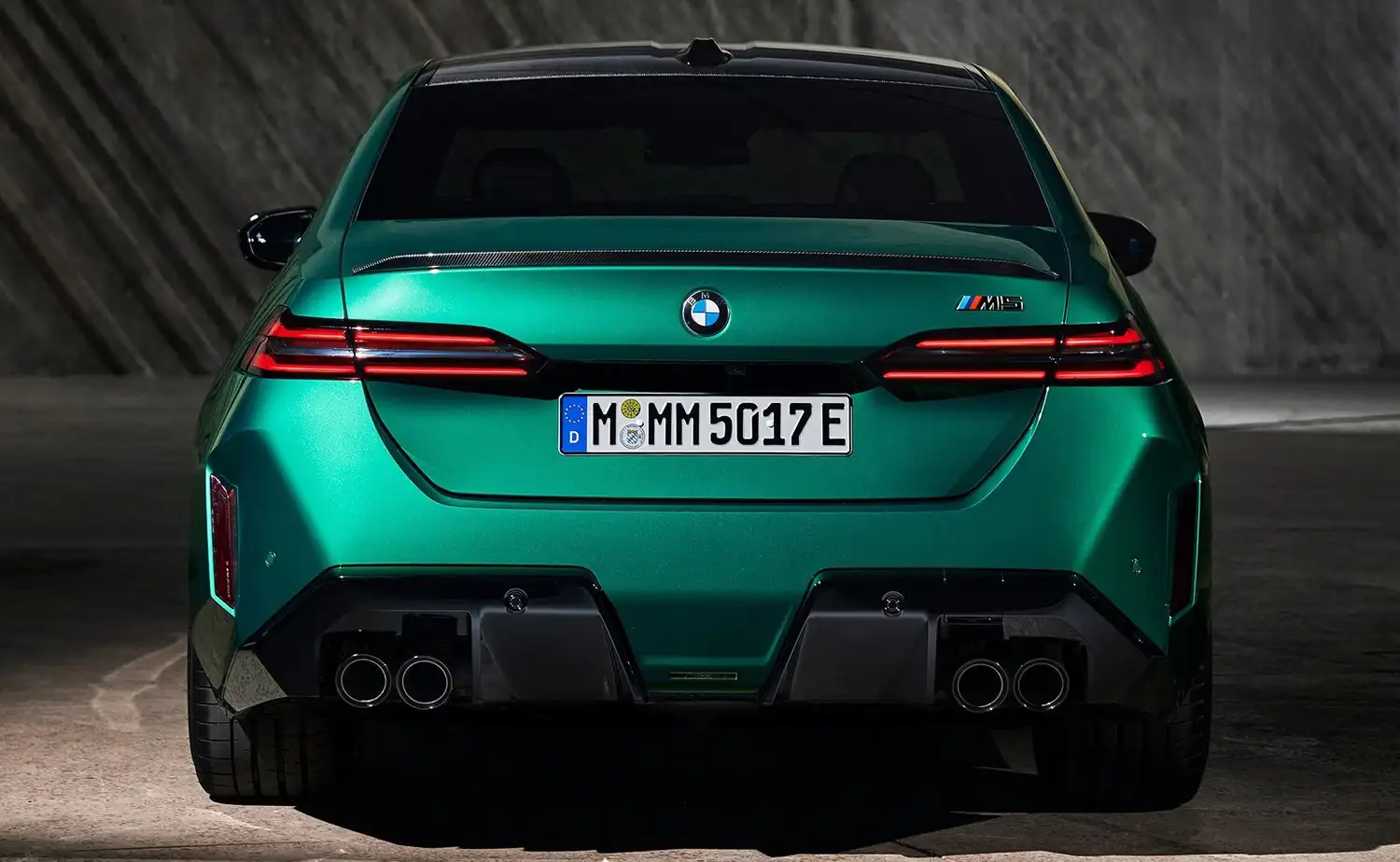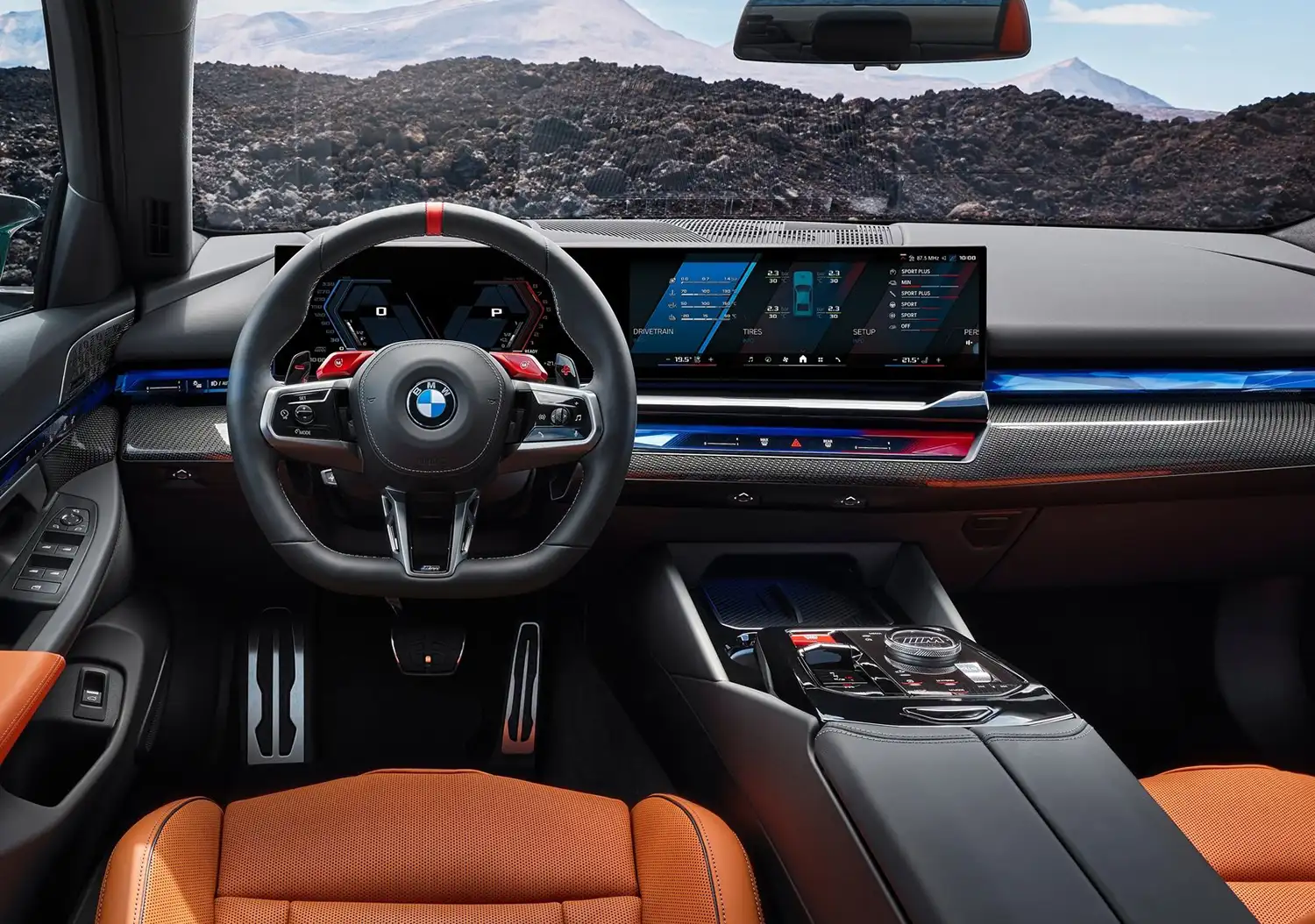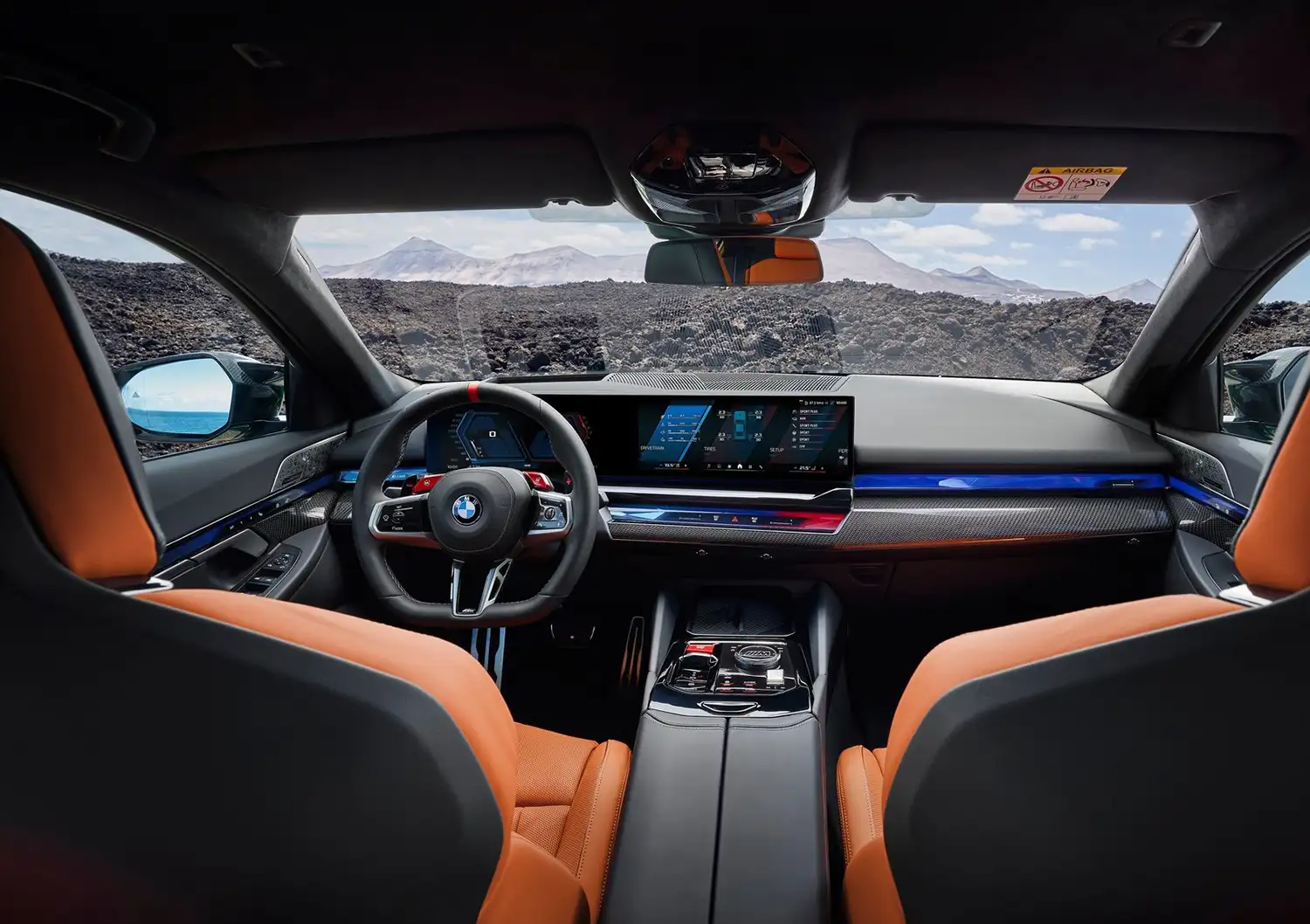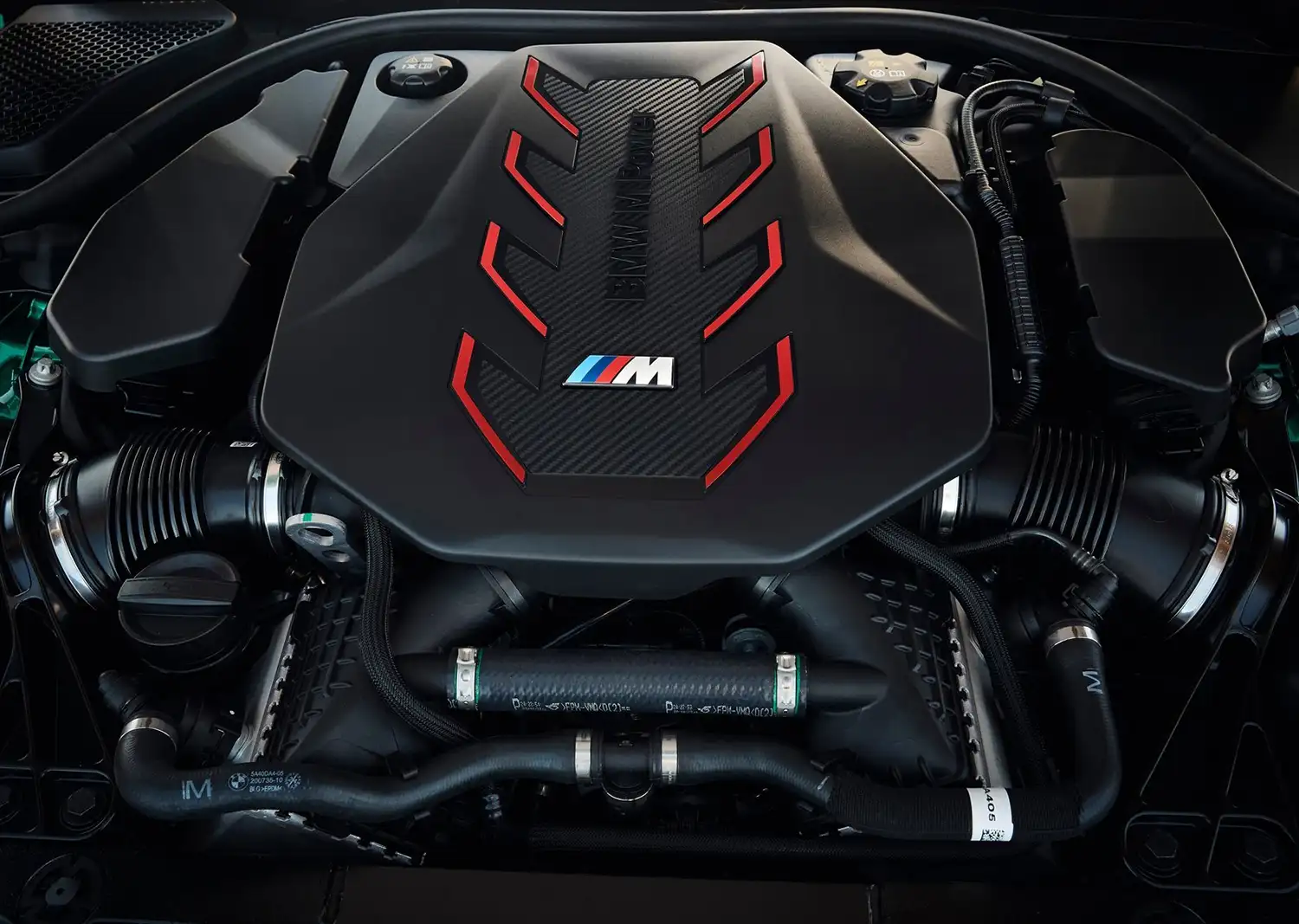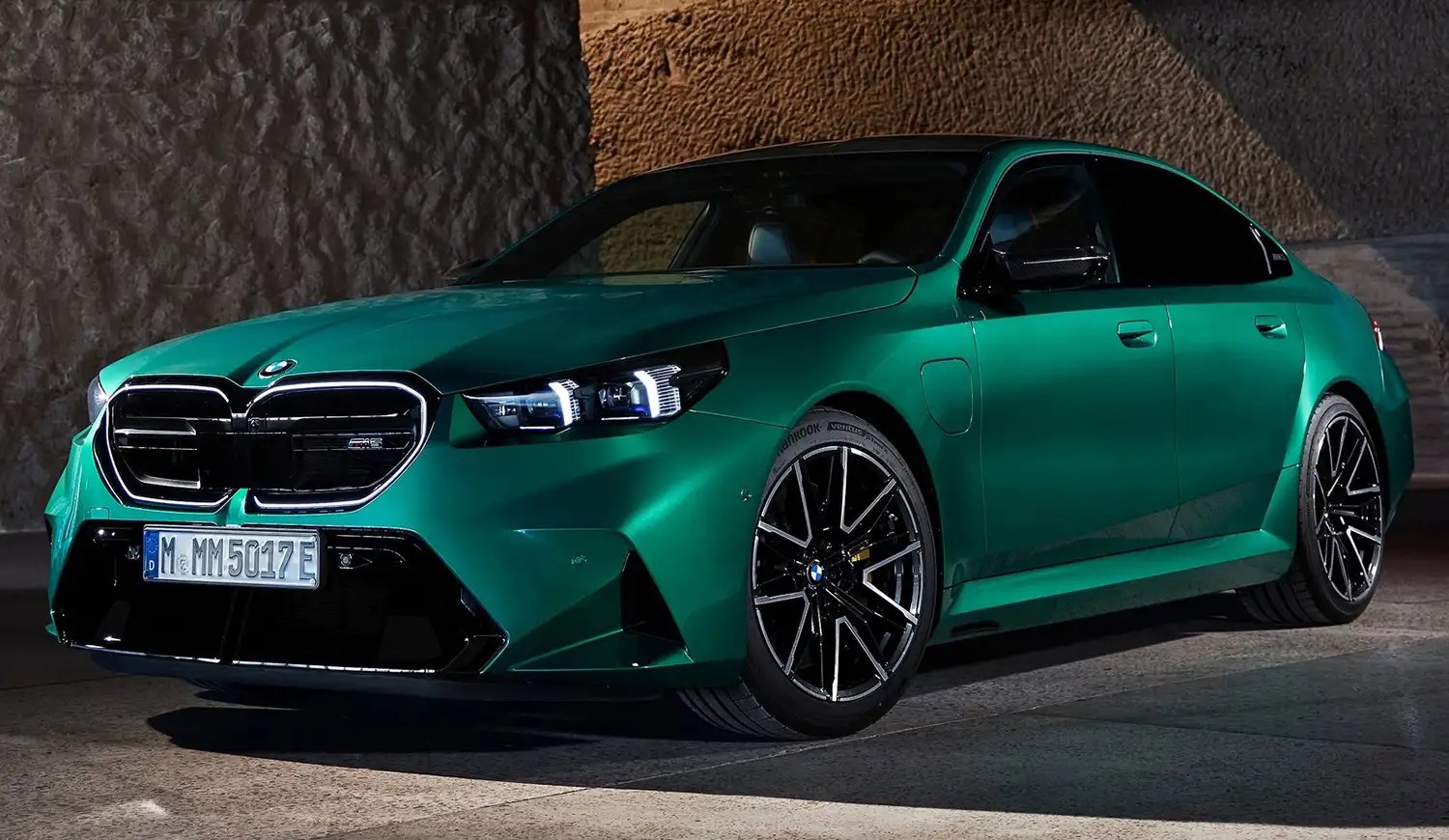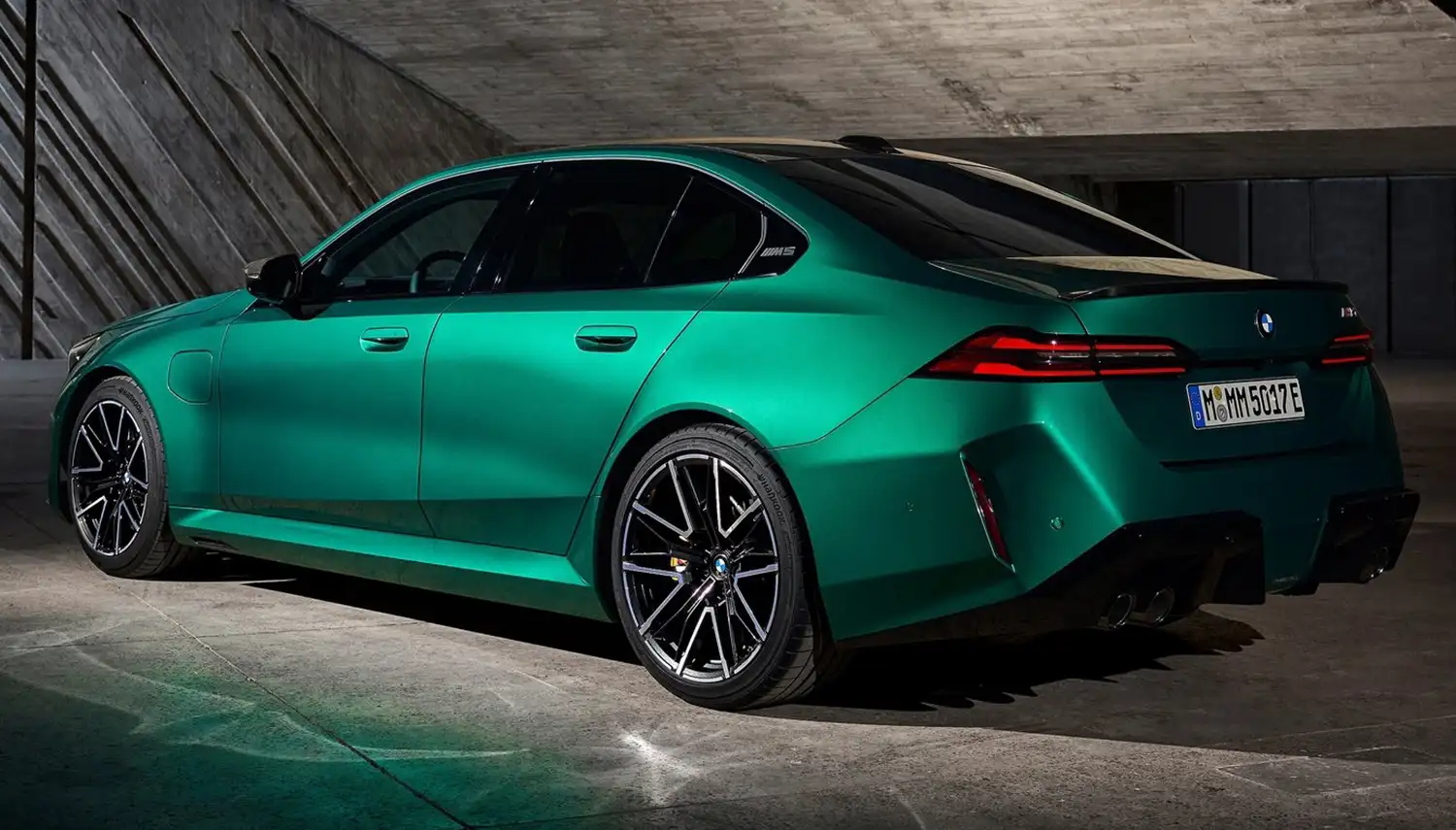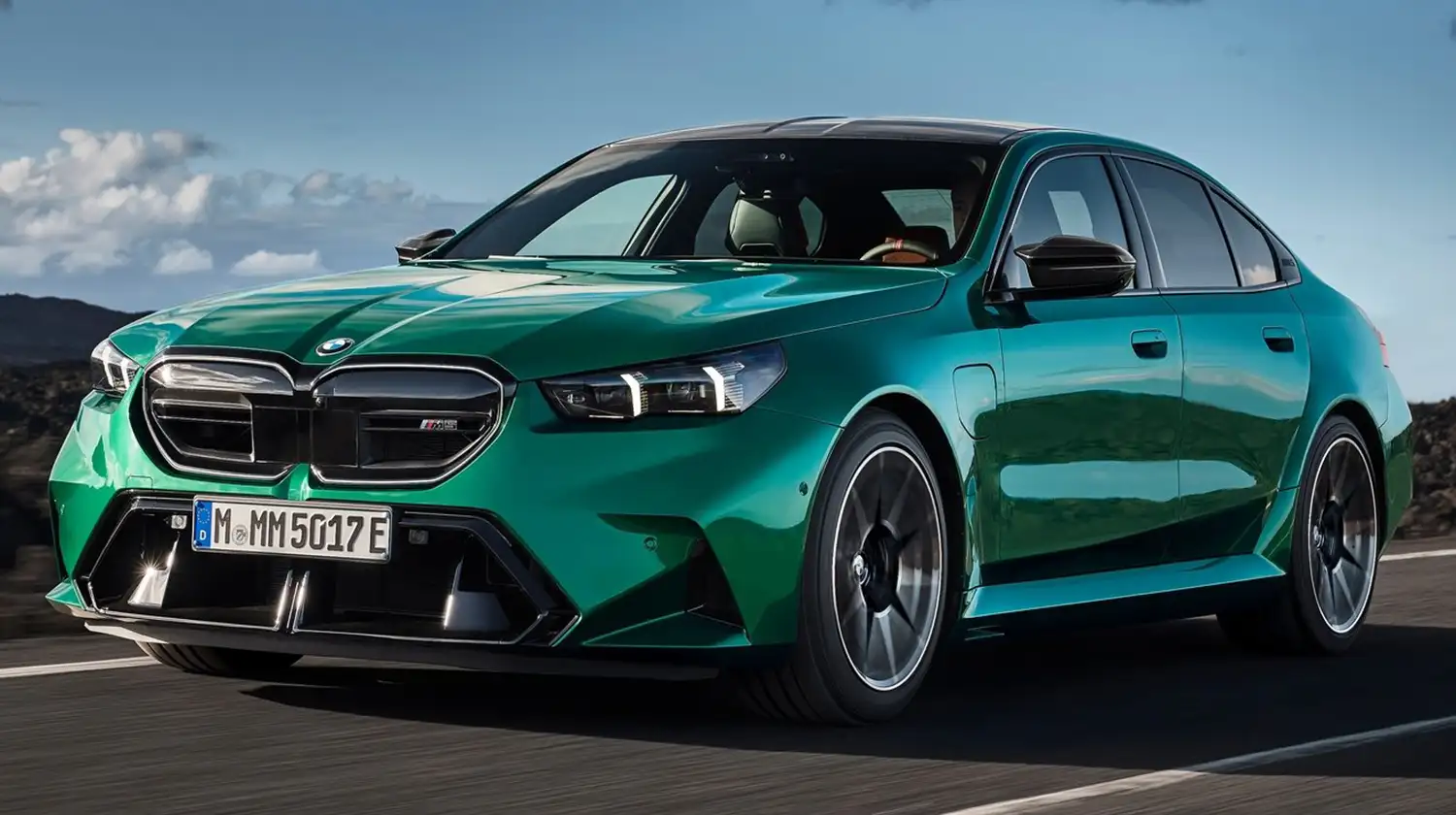
The 2025 BMW M5 has arrived, combining the iconic power of its predecessors with groundbreaking hybrid technology. This evolution marks a significant shift in the M5 lineup, introducing electrification alongside its renowned V8 engine. This change, much like the earlier transition from rear-wheel to all-wheel drive, has sparked mixed reactions among enthusiasts, especially considering the added weight.
Embracing Hybrid Power
Anticipation for a hybrid M5 has been building, and BMW has finally delivered. The standout feature is the retention of the 4.4-liter turbocharged V8 engine, now enhanced with an electric motor. This combination results in a formidable 717 hp (727 PS / 535 kW) and 738 lb-ft (1,000 Nm) of torque. The internal combustion engine alone delivers 577 hp (569 bhp / 424 kW) and 553 lb-ft (750 Nm) of torque, with a high-revving nature and power band from 5,600 to 6,500 rpm.
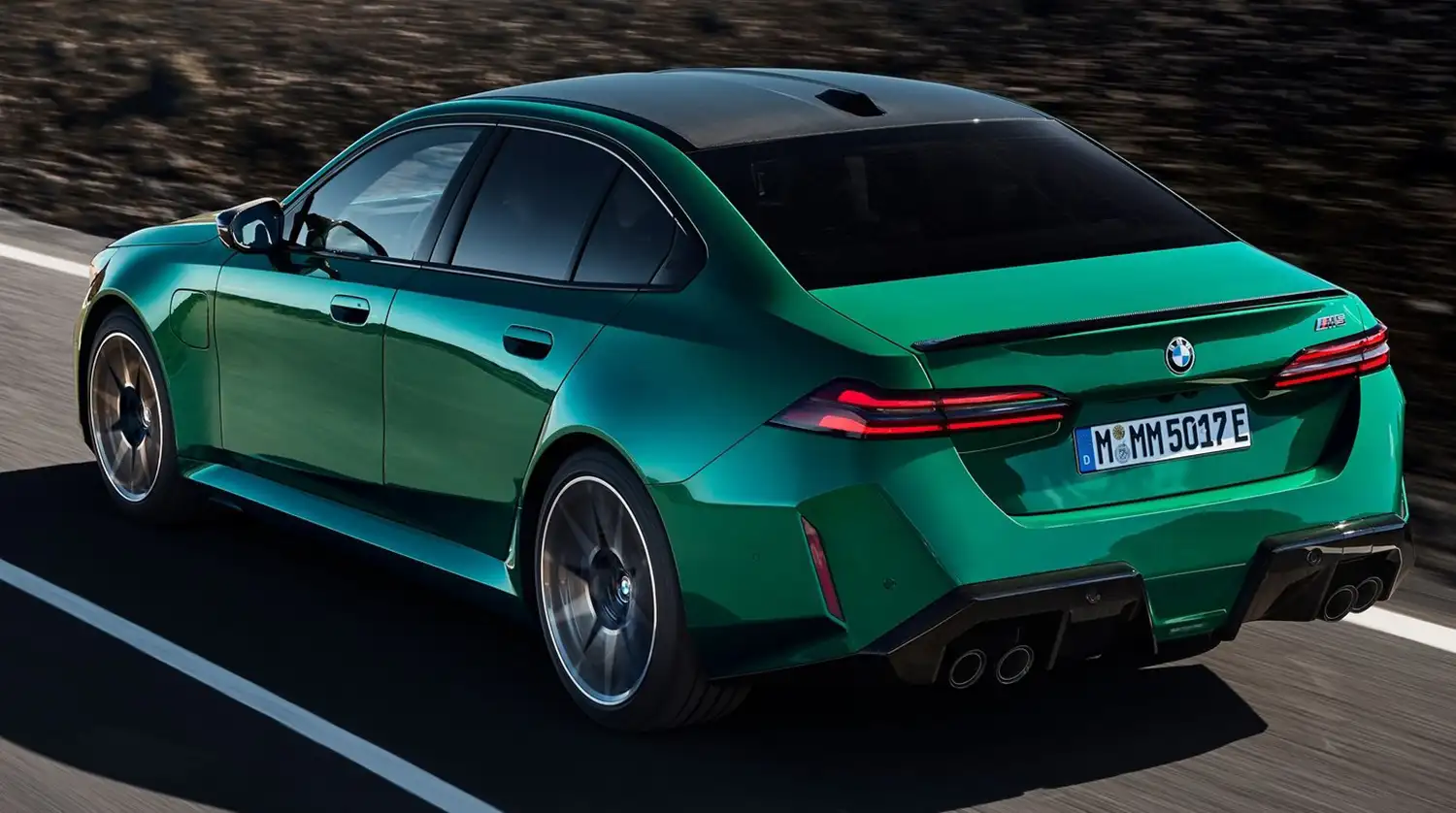
The new M5 utilizes the S68 engine, similar to the one in the XM super-SUV, with the electric motor adding an extra 194 hp and 207 lb-ft of torque. However, this electrification comes at a cost, pushing the car’s weight to 5,390 lbs (2,445 kg), a significant increase from the previous model’s 4,345 lbs (1,971 kg).
Performance and Efficiency
This weight gain slightly impacts acceleration, with the 2025 M5 reaching 60 mph in 3.4 seconds compared to the F90 M5’s 3.2 seconds. Despite the added power, the performance numbers reflect the added heft, but the top speed remains capped at 155 mph (250 km/h), or 190 mph (306 km/h) with the M Driver’s package.
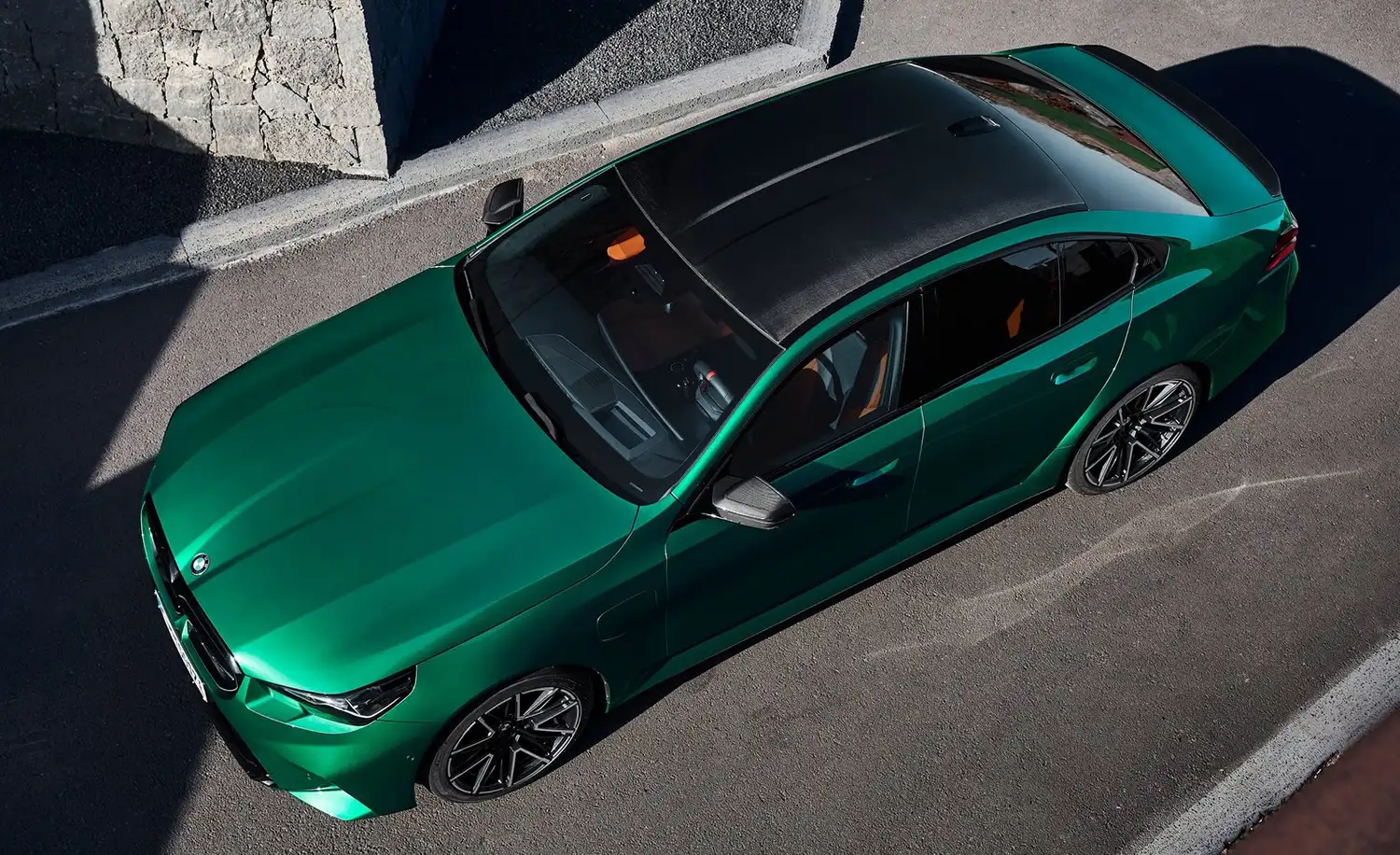
The hybrid system provides a modest electric-only range of 25 miles (40 km), emphasizing efficiency and flexibility over outright speed. The drivetrain is controlled by an eight-speed “M Steptronic” gearbox, featuring a pre-gearing stage that boosts the electric motor’s torque to 332 lb-ft (450 Nm). Additionally, the new “Boost Control” system allows drivers to maximize performance settings with a simple paddle shift hold.
Advanced All-Wheel Drive
The 2025 M5 retains its all-wheel-drive configuration, with options to switch to a rear-biased or purely rear-wheel drive setup for more dynamic handling. The Active M Differential ensures optimal power distribution, enhancing traction and control.
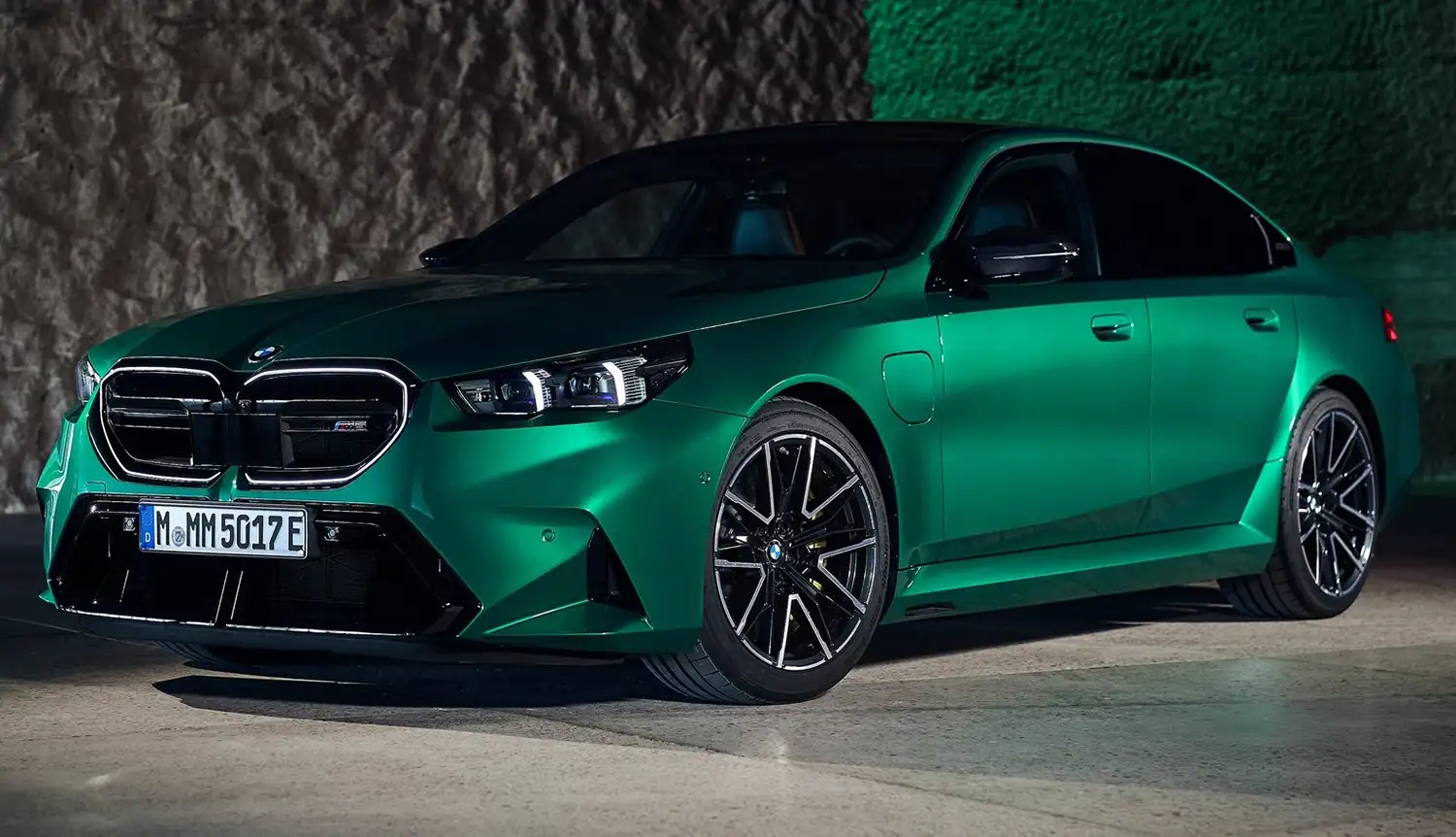
Engineering Excellence
Under the skin, the M5 benefits from model-specific engine and transmission mounts and a re-engineered suspension system. The front double-wishbone setup uses lightweight aluminum components to reduce unsprung mass, and the rear suspension features new track control, camber control, and guide arms.
Bold New Design
Aesthetically, the 2025 M5 sports a bold design with an enclosed gloss black grille, wider arches, and staggered 20-inch front and 21-inch rear wheels. The brakes are substantial, with 16-inch front and 15.7-inch rear discs, and optional M Carbon ceramic brakes reduce weight by 55 lbs.
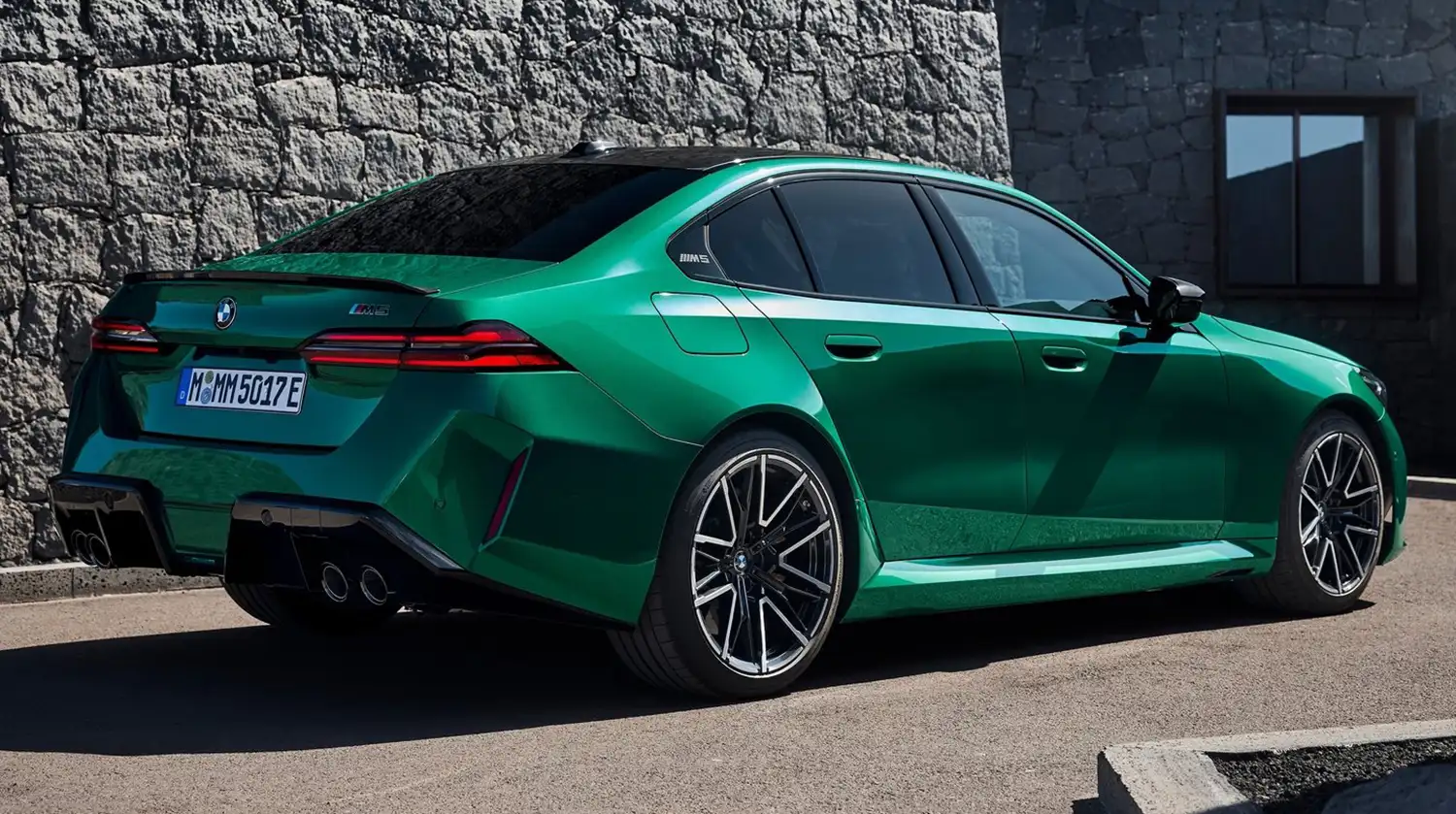
Luxurious Interior
The interior offers M Multifunction seats with various color options, including the new BMW Individual Full Merino Metallic leather package. Standard features include a heated steering wheel, M-specific interior lighting, a Bowers & Wilkins Surround Sound System, a heads-up display, and the Sky Lounge Panoramic Roof. The cabin operates on BMW’s Operating System 8.5, integrating a 12.3-inch information display and a 14.9-inch control display with minimal physical buttons.
Availability and Pricing
The 2025 BMW M5 will debut at the Goodwood Festival of Speed, with production starting in July at BMW’s Dingolfing plant. Pricing begins at $119,500, plus a $1,175 destination fee, reflecting a 16 percent increase over the 2018 M5’s launch price.
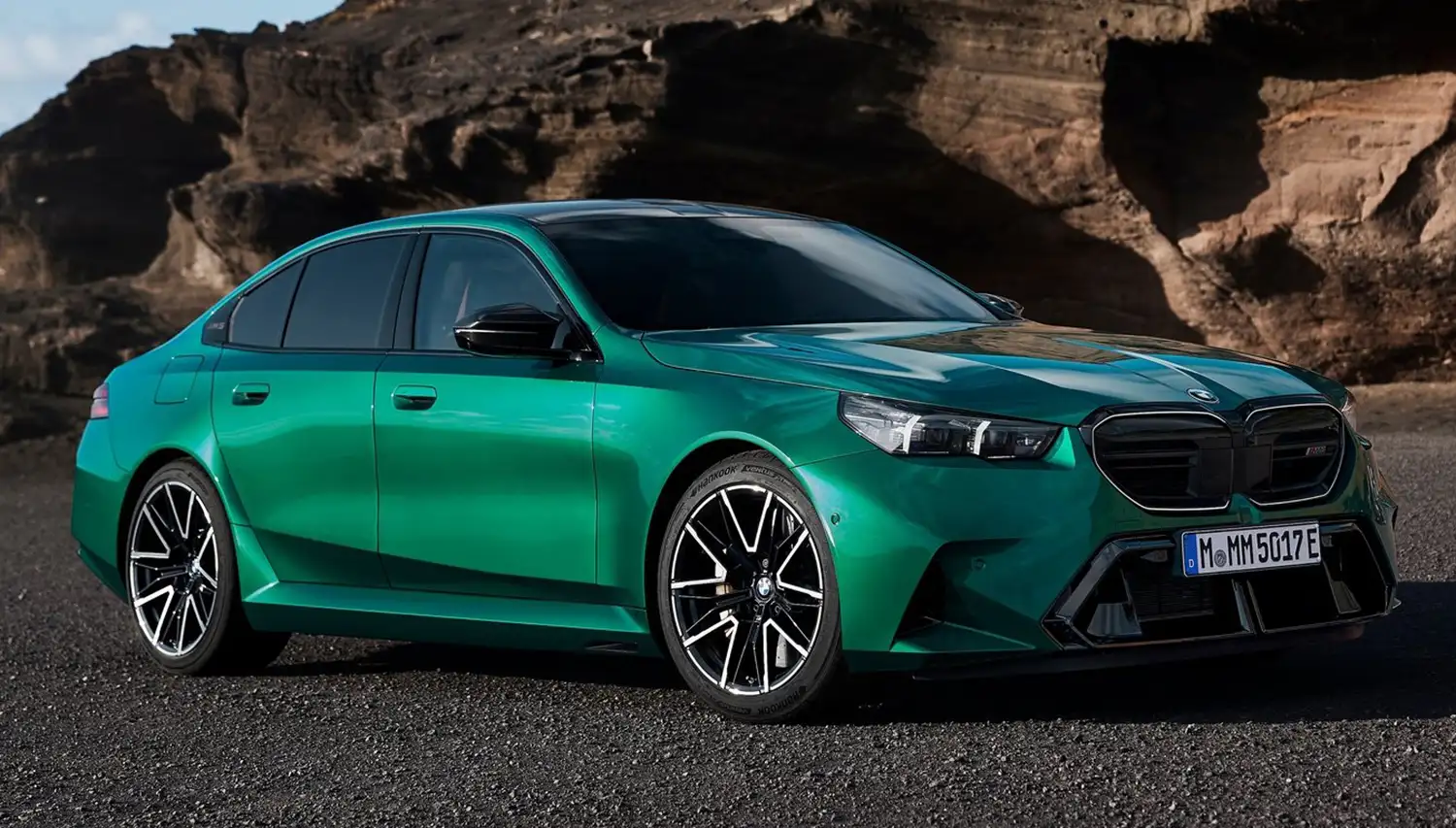
Engine Specifications and Performance
- Engine: 4.4-liter turbocharged V8 with hybrid electric motor
- Combined Power: 717 hp (727 PS / 535 kW)
- Combined Torque: 738 lb-ft (1,000 Nm)
- ICE Power: 577 hp (569 bhp / 424 kW)
- ICE Torque: 553 lb-ft (750 Nm)
- Electric Motor Power: 194 hp
- Electric Motor Torque: 207 lb-ft
- 0-60 mph: 3.4 seconds
- Top Speed: 155 mph (250 km/h), 190 mph (306 km/h) with M Driver’s package
- Electric Range: 25 miles (40 km)
- Weight: 5,390 lbs (2,445 kg)
Source: BMW
This Article use tools from Chatgpt
